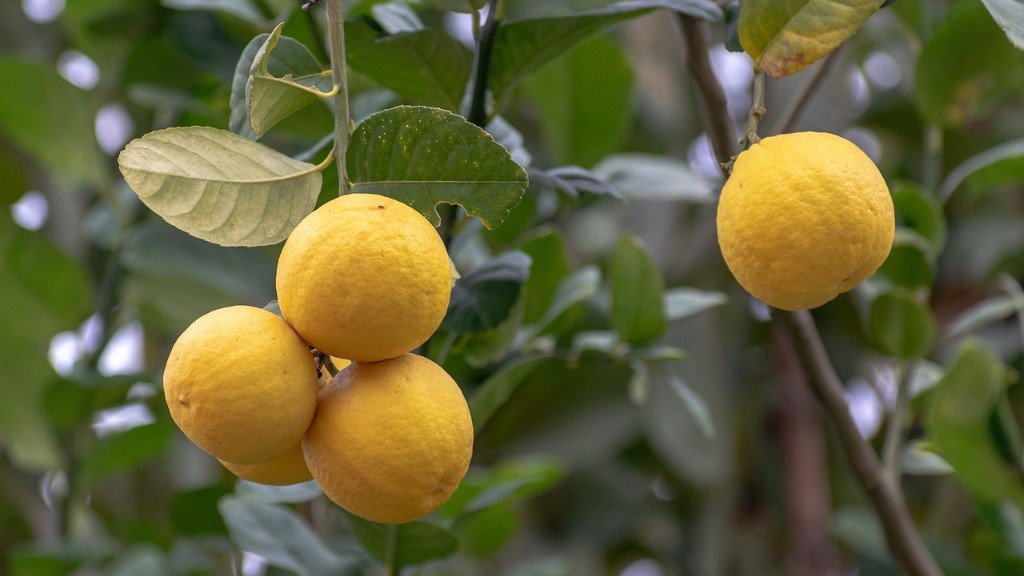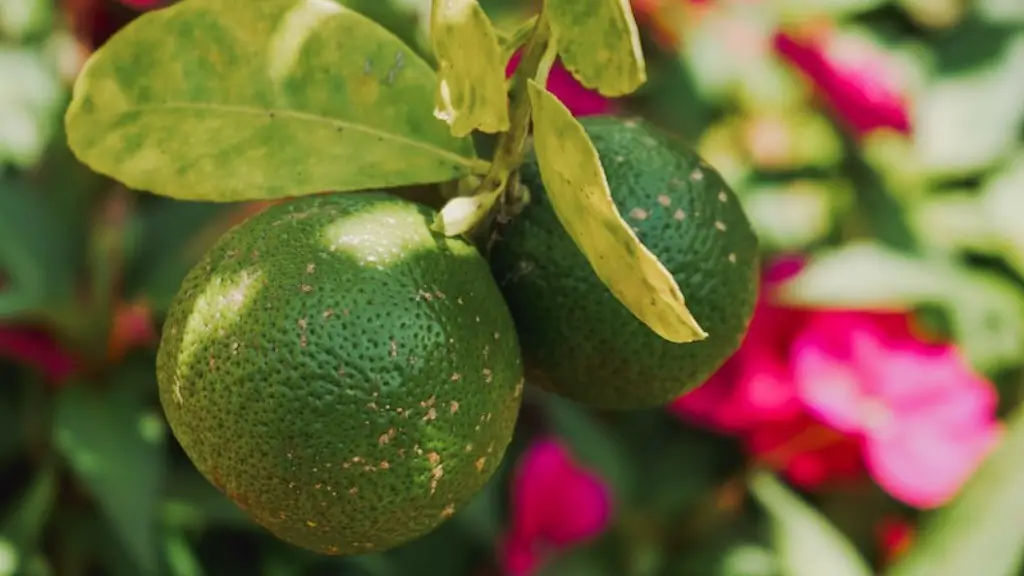Lemon trees thrive when they have a regular watering schedule that not only ensures they don’t become underwatered, but also that they don’t become overwatered. How often you water your lemon tree depends both on the age of the tree and the season, although generally a lemon tree should be watered at least twice a week when it’s young, and once a week when it’s more mature. For young trees, it’s also important to water the soil deeply, which means about two to three gallons for every two feet of soil. In summer, your tree should be watered a bit more, almost to the point of saturation, and then a break until the topsoil is dry to the touch.
In spring and summer, soil moisture should be checked regularly — if the soil feels dry to the touch, the tree needs more water. It’s important not to let the soil dry out completely between waterings. Overwatering, however, can be just as dangerous as underwatering so use a soil moisture meter to keep your tree’s soil at the right levels of dampness. Knowing when to water your tree is important, so make sure to watch out for any wilting of leaves or foliage, as this can indicate that your tree needs immediate irrigation.
In summer, a more frequent watering regime is necessary, allowing the water to soak in and reach the roots. In wintertime, when it’s cold and dry, many people tend to skip out on the watering, however, it’s still important to keep your plant hydrated and well-nourished throughout the colder months, holing yourself to a routine of shallow waterings every two weeks to a month, depending on the weather. It’s also important to use lukewarm or even room temperature water; cold water can shock and damage your tree.
Overall, the amount you water your lemon tree should be determined by the season’s seasonal rainfall and outdoor temperatures. However, if you stick with regular watering and use a time-tested watering technique, you should have a healthy, hearty plant in no time. Remember, with further care and proper conditions, you can ensure that your lemon tree bears flowers and fruit for years to come, even in harsh weather.
Benefits Of Watering Your Lemon Tree
Lemon trees need water to produce healthy lemons, and often lack the necessary hydration if not enough water is given to them. Watering your tree allows the water to penetrate the root system deeply, which in turn maximizes growth and produces fuller, healthier, and more bountiful fruit. Regularly watering your lemon tree also helps to reduce the risk of root rot and ensures your tree is absorbing the necessary nutrients, minerals, and salts that it needs so that it can thrive.
Water also helps to keep the temperature stable and to cool down the leaves of the tree, especially during hot times of the year. Furthermore, having a routine watering schedule can help limit stress on the tree. Lemon trees, like all other trees, are prone to drought stress which can lead to a variety of issues that can be avoided if water is given regularly.
Tips for Watering a Lemon Tree
Watering a lemon tree is not overly difficult as long as you adhere to a regular schedule and use the right technique. Here are a few tips to keep in mind:
- Water your tree early in the morning or late in the afternoon.
- Water your tree slowly and deeply to help the soil absorb it.
- Check the soil before watering to make sure it’s not already damp.
- If possible, use sprinklers with larger droplets to reduce the chance of leaf burn.
- Avoid watering the tree too frequently as this will water-log the soil.
Incorporating Mulching into Watering Routine
Mulching your lemon tree can help to retain moisture in the soil and reduce water loss, making it a great supplement to your regular watering routine. To mulch, simply spread a layer of wood chips, straw, grass clippings, or similar organic material around the base of the tree, making sure to avoid the trunk. The mulch will act as a protective layer that keeps the soil moist and cool, as well as blocking weeds that might pop up and compete for nutrients and water. Making sure the mulch does not touch the trunk is important, as this can cause rotting. Additionally, it’s important to keep an eye on the mulch and replenish it as it eventually breaks down.
Identifying Water Deficiencies in Your Lemon Tree
If your lemon tree is not getting enough water, there are some signs it may display. These include thinner foliage, leaves starting to dry out and browning, yellowing of the leaves, and wilting of the leaves. When this occurs, it’s important to water the tree right away. Additionally, if the soil is dry to the touch, it likely needs water.
If your lemon tree is getting too much water, signs such as yellowing and wilting of the leaves and defoliation may arise. If this occurs, it is important to assess your watering schedule and adjust if need be. Additionally, if you experience stunted growth, this might mean your tree is suffering from overwatering.
Importance of Pruning
Pruning is essential for lemon trees to remain healthy and productive. In the springtime, lemon trees should be pruned to remove any dead or old branches, as well as any branches that are blocking out light and airflow. Pruning in the spring also helps to promote growth. Additionally, if your tree is pruned, it will further improve the conditions for water to reach and be absorbed by the tree’s roots. Pruning can also help slow down water evaporation, as fewer branches and leaves means less water loss. As a result, you can save time and energy by not having to water your tree as frequently.

